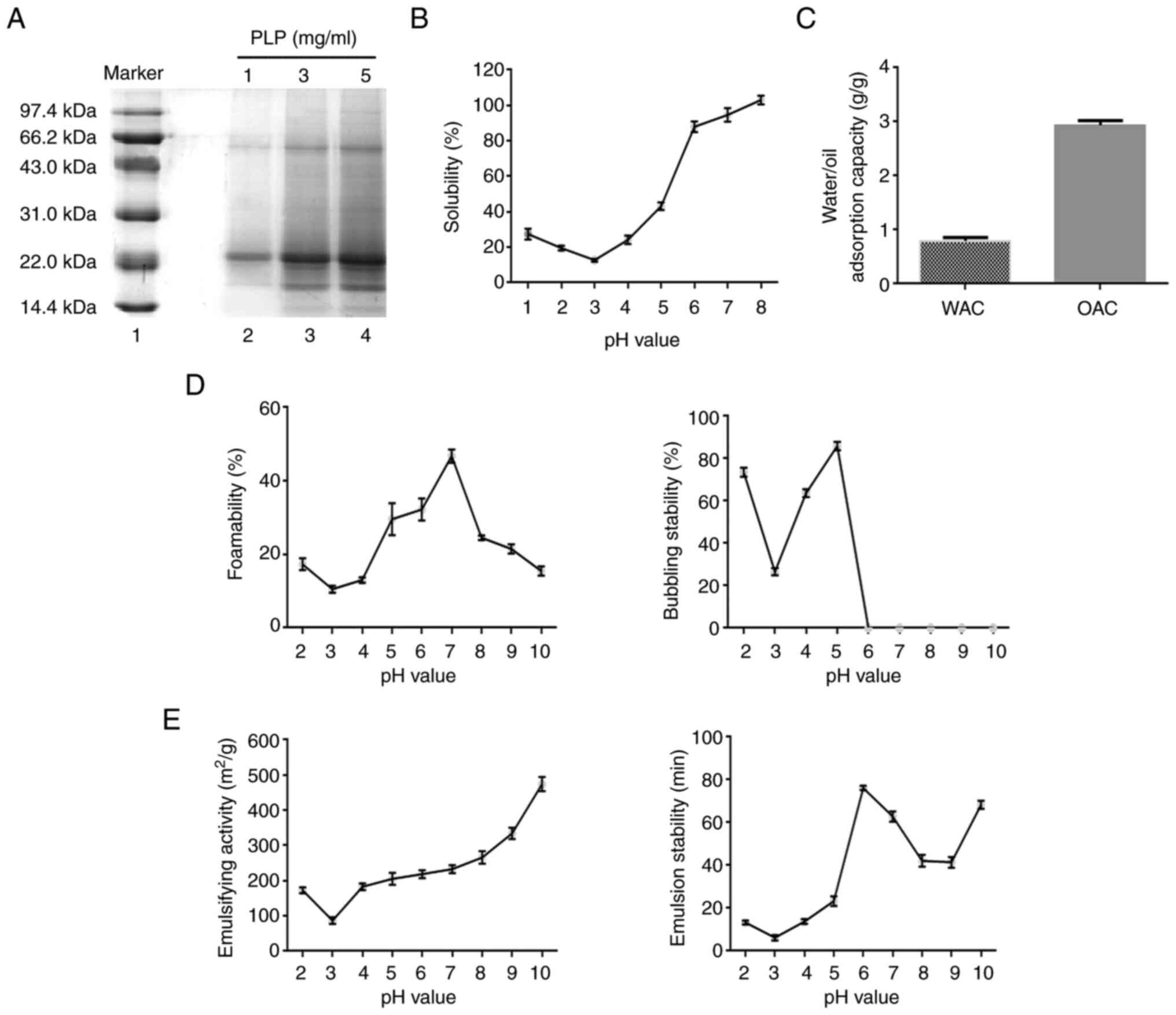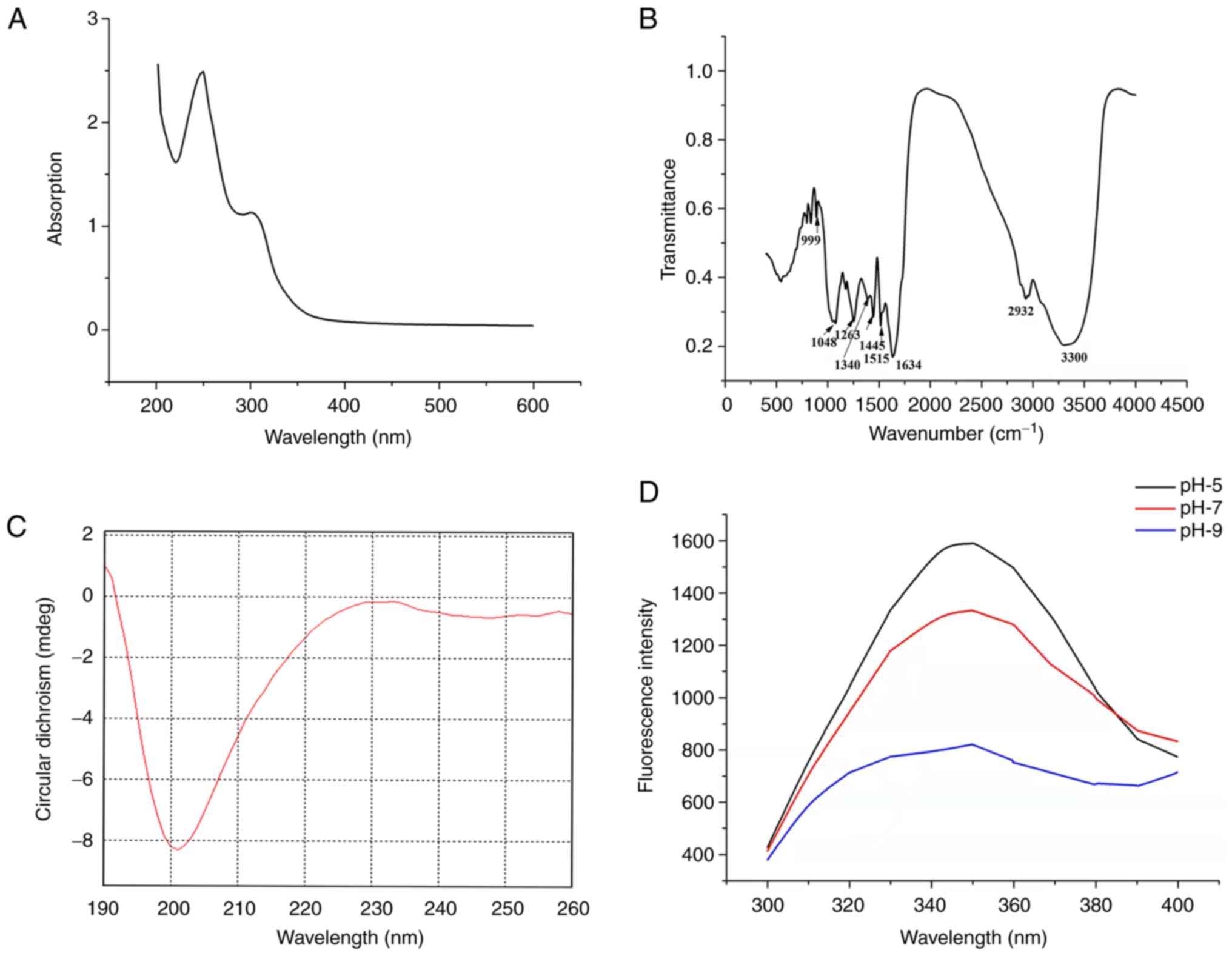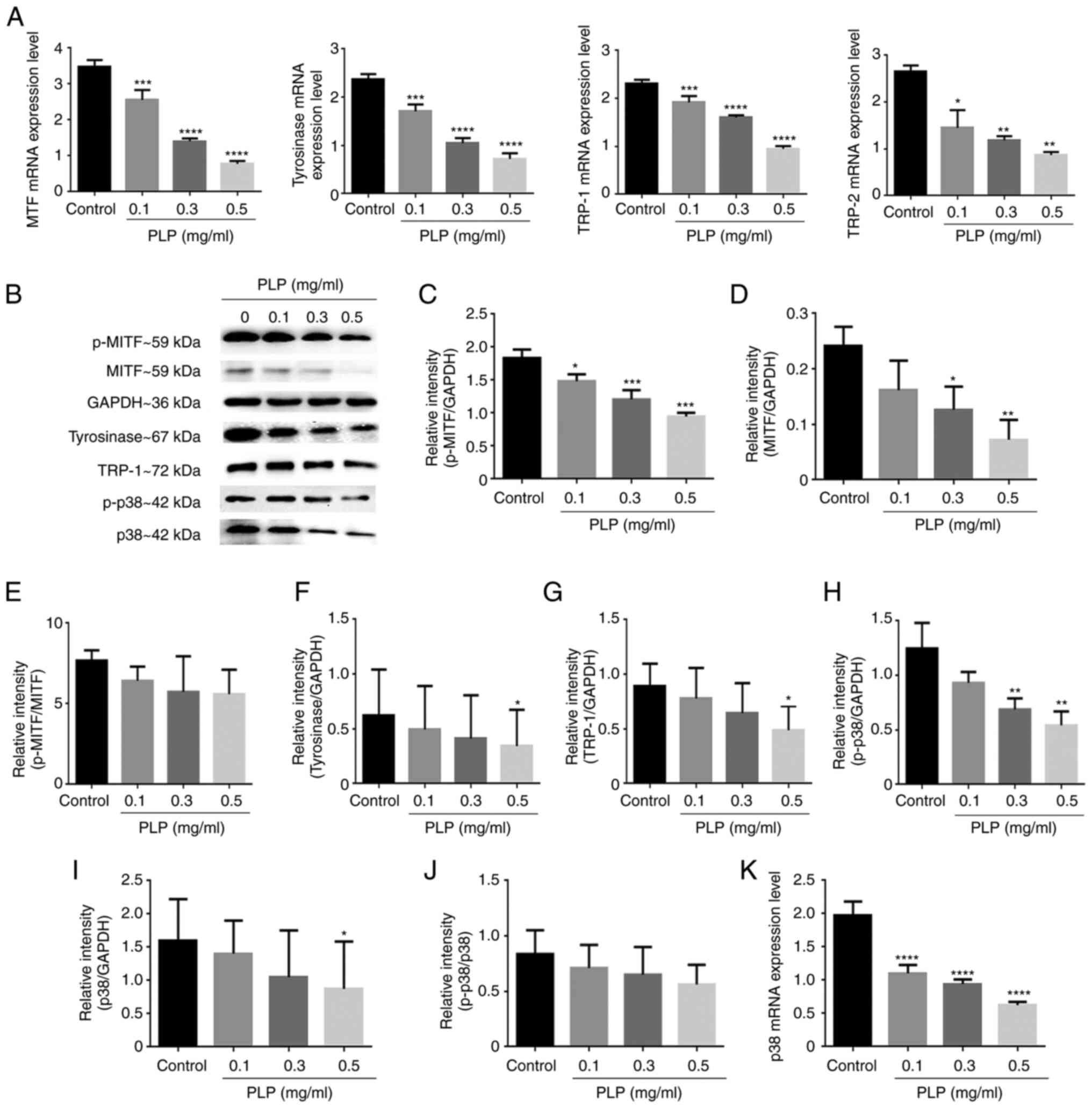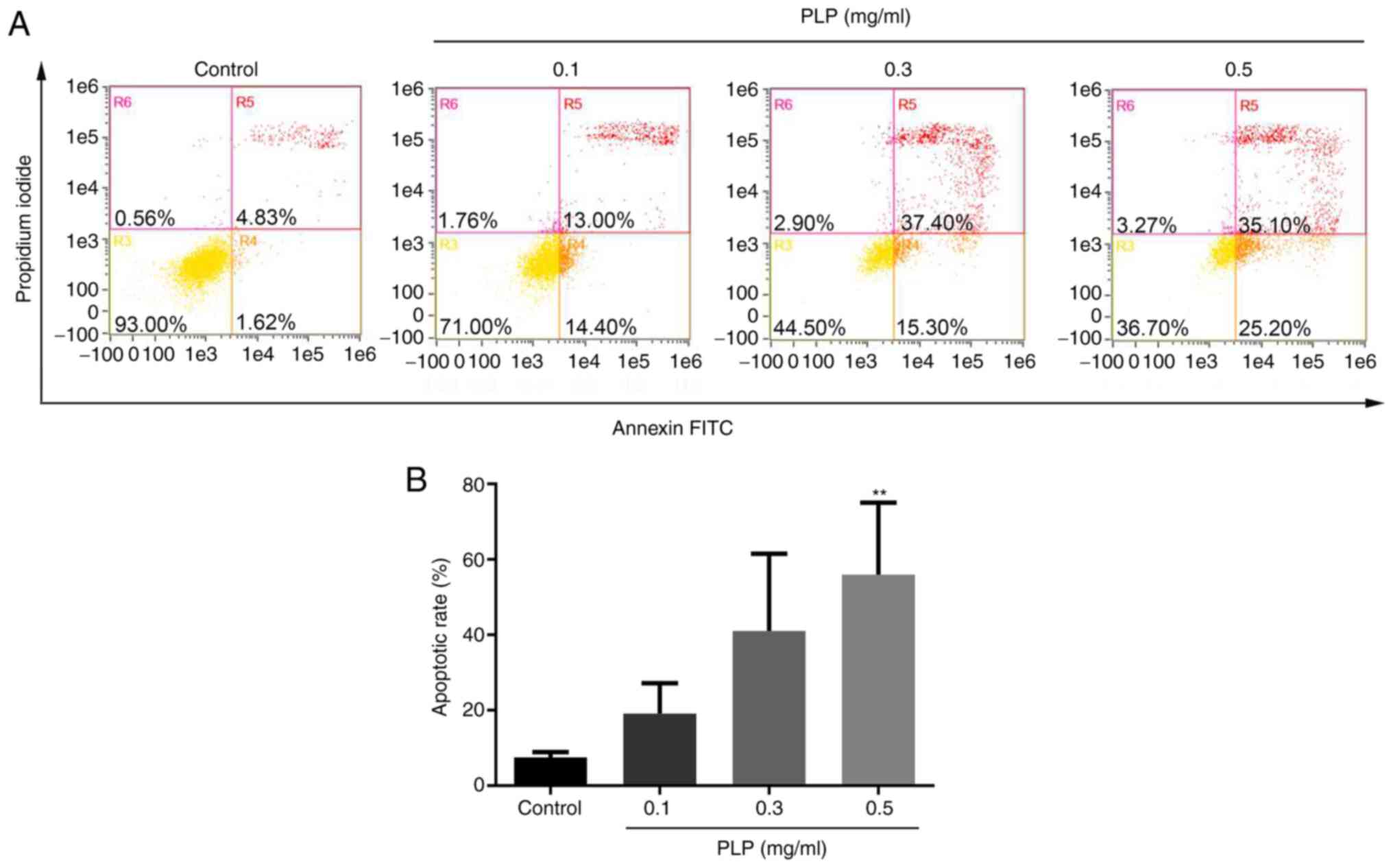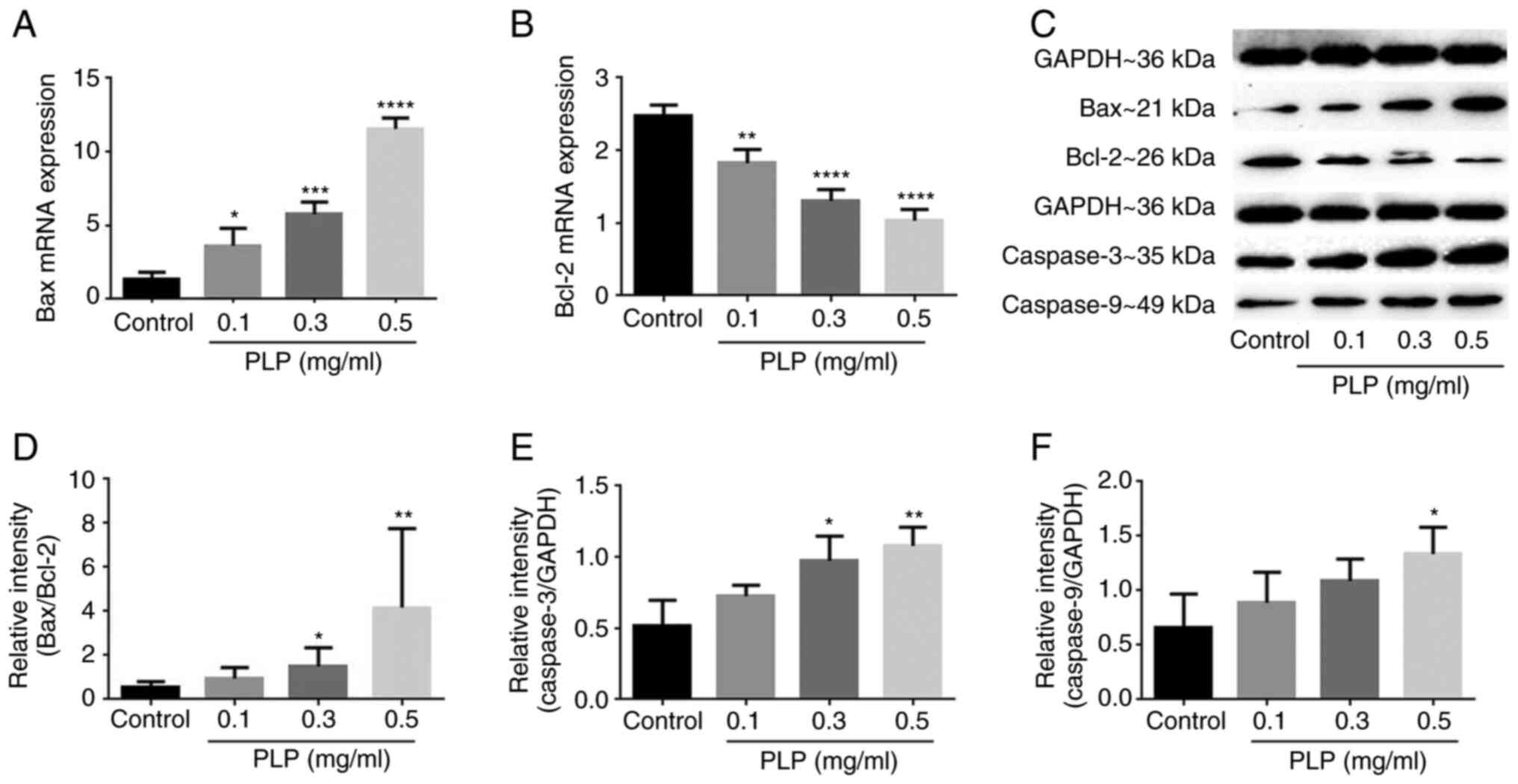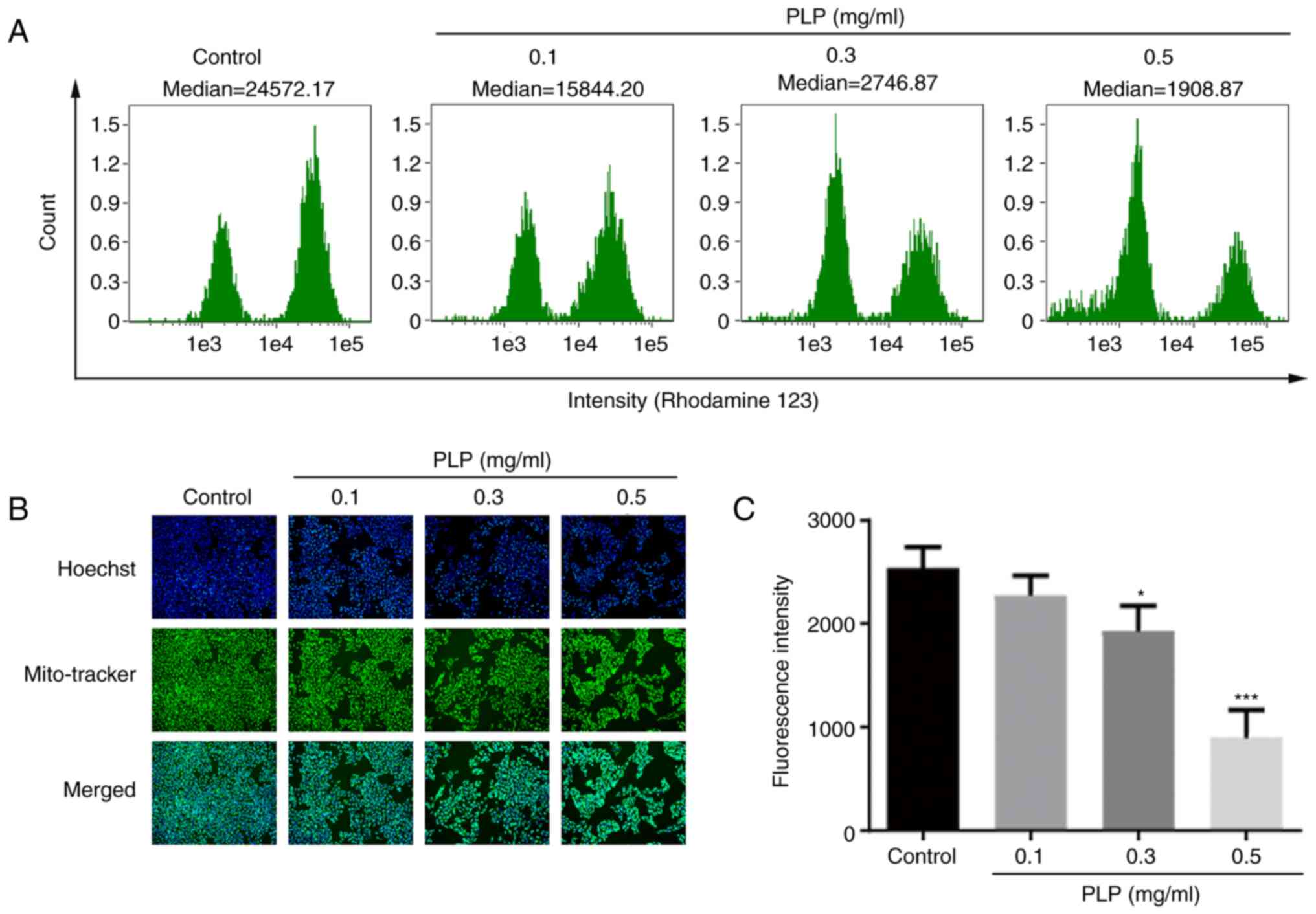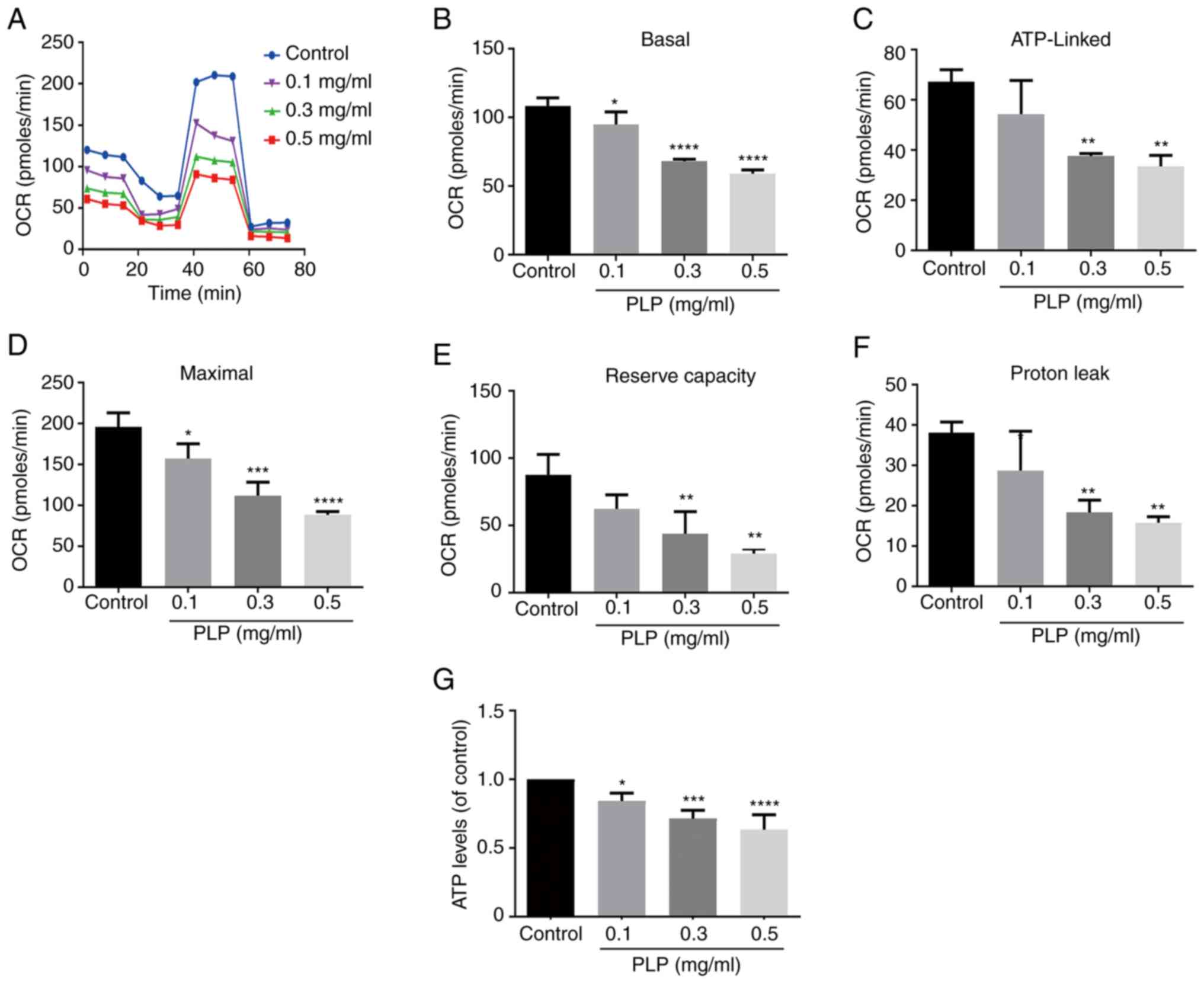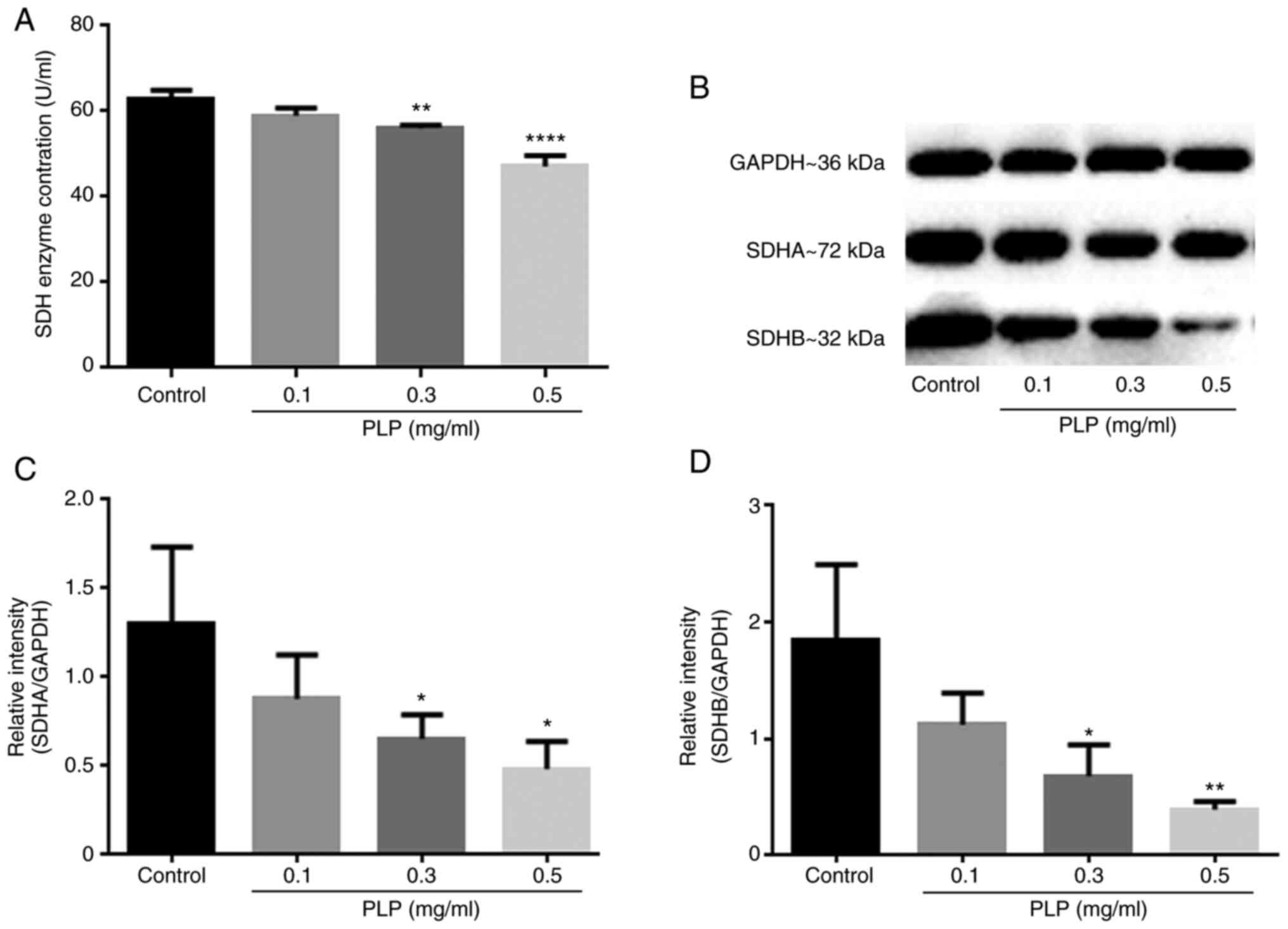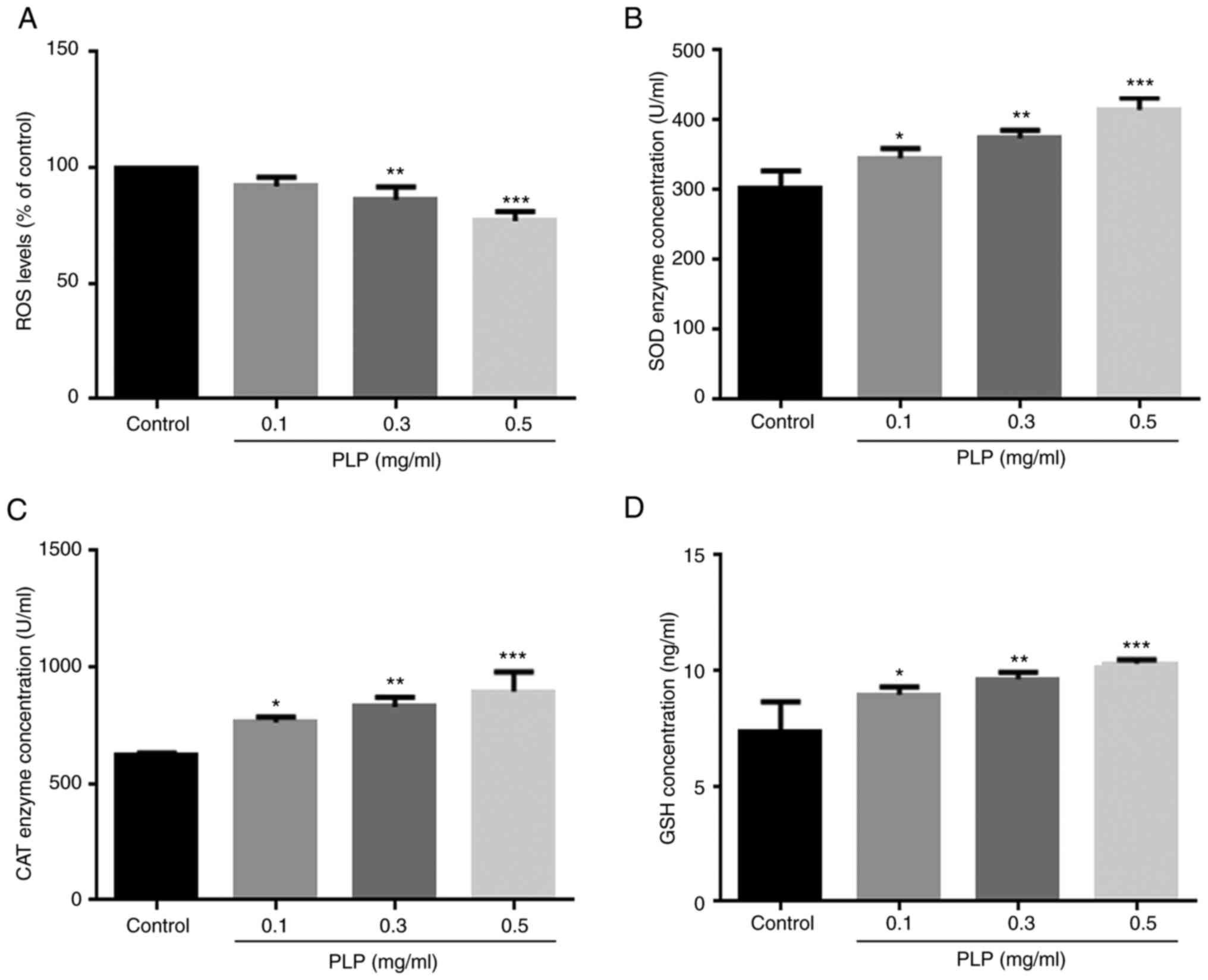|
1
|
Bonaventure J, Domingues MJ and Larue L:
Cellular and molecular mechanisms controlling the migration of
melanocytes and melanoma cells. Pigment Cell Melanoma Res.
26:316–325. 2013. View Article : Google Scholar : PubMed/NCBI
|
|
2
|
Wang HD, Chen CC, Huynh P and Chang JS:
Exploring the potential of using algae in cosmetics. Bioresour
Technol. 184:355–362. 2015. View Article : Google Scholar : PubMed/NCBI
|
|
3
|
Otręba M, Rok J, Buszman E and Wrześniok
D: Regulation of melanogenesis: The role of cAMP and MITF. Postepy
Hig Med Dosw (Online). 66:33–40. 2012.(In Polish). PubMed/NCBI
|
|
4
|
Otręba M, Miliński M, Buszman E, Wrześniok
D and Beberok A: Hereditary hypomelanocytoses: The role of PAX3,
SOX10, MITF, SNAI2, KIT, EDN3 and EDNRB genes. Postepy Hig Med Dosw
(Online). 67:1109–1118. 2013.(In Polish). View Article : Google Scholar : PubMed/NCBI
|
|
5
|
Ahn SJ, Koketsu M, Ishihara H, Lee SM, Ha
SK, Lee KH, Kang TH and Kima SY: Regulation of melanin synthesis by
selenium-containing carbohydrates. Chem Pharm Bull (Tokyo).
54:281–286. 2006. View Article : Google Scholar : PubMed/NCBI
|
|
6
|
D'Mello SA, Finlay GJ, Baguley BC and
Askarian-Amiri ME: Signaling pathways in melanogenesis. Int J Mol
Sci. 17:11442016. View Article : Google Scholar : PubMed/NCBI
|
|
7
|
Buitrago E, Hardré R, Haudecoeur R, Jamet
H, Belle C, Boumendjel A, Bubacco L and Réglier M: Are human
tyrosinase and related proteins suitable targets for melanoma
therapy? Curr Top Med Chem. 16:3033–3047. 2016. View Article : Google Scholar : PubMed/NCBI
|
|
8
|
Pillaiyar T, Manickam M and Namasivayam V:
Skin whitening agents: Medicinal chemistry perspective of
tyrosinase inhibitors. J Enzyme Inhib Med Chem. 32:403–425. 2017.
View Article : Google Scholar : PubMed/NCBI
|
|
9
|
Wang Y, Li SM, Huang J, Chen SY and Liu
YP: Mutations of TYR and MITF genes are associated with plumage
colour phenotypes in geese. Asian-Australas J Anim Sci. 27:778–783.
2014. View Article : Google Scholar : PubMed/NCBI
|
|
10
|
Sun L, Guo Y, Zhang Y and Zhuang Y:
Antioxidant and anti-tyrosinase activities of phenolic extracts
from rape bee pollen and inhibitory melanogenesis by cAMP/MITF/TYR
pathway in B16 mouse melanoma cells. Front Pharmacol. 8:1042017.
View Article : Google Scholar : PubMed/NCBI
|
|
11
|
Raja DA, Gotherwal V, Burse SA,
Subramaniam YJ, Sultan F, Vats A, Gautam H, Sharma B, Sharma S,
Singh A, et al: pH-controlled histone acetylation amplifies
melanocyte differentiation downstream of MITF. EMBO Rep.
21:e483332020. View Article : Google Scholar : PubMed/NCBI
|
|
12
|
Pathria G, Garg B, Borgdorff V, Garg K,
Wagner C, Superti-Furga G and Wagner SN: Overcoming MITF-conferred
drug resistance through dual AURKA/MAPK targeting in human melanoma
cells. Cell Death Dis. 7:e21352016. View Article : Google Scholar : PubMed/NCBI
|
|
13
|
Jung E, Kim JH, Kim MO, Jang S, Kang M, Oh
SW, Nho YH, Kang SH, Kim MH, Park SH and Lee J: Afzelin positively
regulates melanogenesis through the p38 MAPK pathway. Chem Biol
Interact. 254:167–172. 2016. View Article : Google Scholar : PubMed/NCBI
|
|
14
|
Wang DD, Jin Y, Wang C, Kim YJ, Perez ZEJ,
Baek NI, Mathiyalagan R, Markus J and Yang DC: Rare ginsenoside Ia
synthesized from F1 by cloning and overexpression of the
UDP-glycosyltransferase gene from bacillus subtilis: Synthesis,
characterization, and in vitro melanogenesis inhibition activity in
BL6B16 cells. J Ginseng Res. 42:42–49. 2018. View Article : Google Scholar : PubMed/NCBI
|
|
15
|
Wang S, Zhang S, Wang S, Gao P and Dai L:
A comprehensive review on Pueraria: Insights on its chemistry and
medicinal value. Biomed Pharmacother. 131:1107342020. View Article : Google Scholar : PubMed/NCBI
|
|
16
|
Hien TT, Kim HG, Han EH, Kang KW and Jeong
HG: Molecular mechanism of suppression of MDR1 by puerarin from
Pueraria lobata via NF-kappaB pathway and cAMP-responsive
element transcriptional activity-dependent up-regulation of
AMP-activated protein kinase in breast cancer MCF-7/adr cells. Mol
Nutr Food Res. 54:918–928. 2010. View Article : Google Scholar : PubMed/NCBI
|
|
17
|
Xu L, Zheng N, He Q, Li R, Zhang K and
Liang T: Puerarin, isolated from Pueraria lobata (Willd.),
protects against hepatotoxicity via specific inhibition of the
TGF-β1/Smad signaling pathway, thereby leading to anti-fibrotic
effect. Phytomedicine. 20:1172–1179. 2013. View Article : Google Scholar : PubMed/NCBI
|
|
18
|
Jeon YD, Lee JH, Lee YM and Kim DK:
Puerarin inhibits inflammation and oxidative stress in dextran
sulfate sodium-induced colitis mice model. Biomed Pharmacother.
124:1098472020. View Article : Google Scholar : PubMed/NCBI
|
|
19
|
Ye Y, Gao Y, Fang Y, Xu L and He F:
Anticancer effect of puerarin on ovarian cancer progression
contributes to the tumor suppressor gene expression and gut
microbiota modulation. J Immunol Res. 2022:44725092022. View Article : Google Scholar : PubMed/NCBI
|
|
20
|
Li Y, Zhang C, Ma X, Yang L and Ren H:
Identification of the potential mechanism of Radix pueraria in
colon cancer based on network pharmacology. Sci Rep. 12:37652022.
View Article : Google Scholar : PubMed/NCBI
|
|
21
|
Zhu J, Xu J, Wang Y, Li C, Chen Z, Song L,
Gao J and Yu R: Purification and structural characterization of a
novel anti-tumor protein from Arca inflata. Int J Biol Macromol.
105:103–110. 2017. View Article : Google Scholar : PubMed/NCBI
|
|
22
|
Livak KJ and Schmittgen TD: Analysis of
relative gene expression data using real-time quantitative PCR and
the 2(−Delta Delta C(T)) method. Methods. 25:402–408. 2001.
View Article : Google Scholar : PubMed/NCBI
|
|
23
|
Noh H, Lee SJ, Jo HJ, Choi HW, Hong S and
Kong KH: Histidine residues at the copper-binding site in human
tyrosinase are essential for its catalytic activities. J Enzyme
Inhib Med Chem. 35:726–732. 2020. View Article : Google Scholar : PubMed/NCBI
|
|
24
|
Shen XF, Teng Y, Sha KH, Wang XY, Yang XL,
Guo XJ, Ren LB, Wang XY, Li J and Huang N: Dietary flavonoid
luteolin attenuates uropathogenic Escherichia. Coli invasion of the
urinary bladder. Biofactors. 42:674–685. 2016. View Article : Google Scholar : PubMed/NCBI
|
|
25
|
Bock FJ and Tait SWG: Mitochondria as
multifaceted regulators of cell death. Nat Rev Mol Cell Biol.
21:85–100. 2020. View Article : Google Scholar : PubMed/NCBI
|
|
26
|
Tian L, Zhu C, Yang H, Li Y and Liu Y:
Protective effect of mitochondrial ND2 C5178A gene mutation on cell
and mitochondrial functions. Oxid Med Cell Longev.
2021:47287142021. View Article : Google Scholar : PubMed/NCBI
|
|
27
|
Li L, Meng Y, Wu X, Li J and Sun Y:
Bromodomain-containing protein 4 inhibitor JQ1 promotes melanoma
cell apoptosis by regulating mitochondrial dynamics. Cancer Sci.
112:4013–4025. 2021. View Article : Google Scholar : PubMed/NCBI
|
|
28
|
Kleszczyński K, Kim TK, Bilska B, Sarna M,
Mokrzynski K, Stegemann A, Pyza E, Reiter RJ, Steinbrink K, Böhm M
and Slominski AT: Melatonin exerts oncostatic capacity and
decreases melanogenesis in human MNT-1 melanoma cells. J Pineal
Res. 67:e126102019. View Article : Google Scholar : PubMed/NCBI
|
|
29
|
Orhan IE and Deniz FSS: Inhibition of
melanogenesis by some well-known polyphenolics: A review. Curr
Pharm Biotechnol. 22:1412–1423. 2021. View Article : Google Scholar : PubMed/NCBI
|
|
30
|
Sarna M, Krzykawska-Serda M, Jakubowska M,
Zadlo A and Urbanska K: Melanin presence inhibits melanoma cell
spread in mice in a unique mechanical fashion. Sci Rep. 9:92802019.
View Article : Google Scholar : PubMed/NCBI
|
|
31
|
Dutta S and Sengupta P: Men and mice:
Relating their ages. Life Sci. 152:244–248. 2016. View Article : Google Scholar : PubMed/NCBI
|
|
32
|
Villareal MO, Kume S, Neffati M and Isoda
H: Upregulation of Mitf by phenolic compounds-rich cymbopogon
schoenanthus treatment promotes melanogenesis in B16 melanoma cells
and human epidermal melanocytes. Biomed Res Int. 2017:83036712017.
View Article : Google Scholar : PubMed/NCBI
|
|
33
|
Lee CS, Nam GB and Park JS:
Protopanaxatriol inhibits melanin synthesis through inactivation of
the pCREB-MITF-tyrosinase signalling pathway in melanocytes. Clin
Exp Dermatol. 44:295–299. 2019. View Article : Google Scholar : PubMed/NCBI
|
|
34
|
Hu Y, Huang J, Li Y, Jiang L, Ouyang Y, Li
Y, Yang L, Zhao X, Huang L, Xiang H, et al: Cistanche deserticola
polysaccharide induces melanogenesis in melanocytes and reduces
oxidative stress via activating NRF2/HO-1 pathway. J Cell Mol Med.
24:4023–4035. 2020. View Article : Google Scholar : PubMed/NCBI
|
|
35
|
Lim HY, Kim E, Park SH, Hwang KH, Kim D,
Jung YJ, Kopalli SR, Hong YD, Sung GH and Cho JY: Antimelanogenesis
effects of theasinensin A. Int J Mol Sci. 22:74532021. View Article : Google Scholar : PubMed/NCBI
|
|
36
|
Song W, Zhao YY, Ren YJ, Liu LL, Wei SD
and Yang HB: Proanthocyanidins isolated from the leaves of Photinia
× fraseri block the cell cycle and induce apoptosis by inhibiting
tyrosinase activity in melanoma cells. Food Funct. 12:3978–3991.
2021. View Article : Google Scholar : PubMed/NCBI
|
|
37
|
Tsatmali M, Ancans J and Thody AJ:
Melanocyte function and its control by melanocortin peptides. J
Histochem Cytochem. 50:125–133. 2002. View Article : Google Scholar : PubMed/NCBI
|
|
38
|
Imokawa G: Autocrine and paracrine
regulation of melanocytes in human skin and in pigmentary
disorders. Pigment Cell Res. 17:96–110. 2004. View Article : Google Scholar : PubMed/NCBI
|
|
39
|
Sun L, Guo C, Yan L, Li H, Sun J, Huo X,
Xie X and Hu J: Syntenin regulates melanogenesis via the p38 MAPK
pathway. Mol Med Rep. 22:733–738. 2020. View Article : Google Scholar : PubMed/NCBI
|
|
40
|
Giuliano S, Ohanna M, Ballotti R and
Bertolotto C: Advances in melanoma senescence and potential
clinical application. Pigment Cell Melanoma Res. 24:295–308. 2011.
View Article : Google Scholar : PubMed/NCBI
|
|
41
|
Strub T, Giuliano S, Ye T, Bonet C, Keime
C, Kobi D, Le Gras S, Cormont M, Ballotti R, Bertolotto C and
Davidson I: Essential role of microphthalmia transcription factor
for DNA replication, mitosis and genomic stability in melanoma.
Oncogene. 30:2319–2332. 2011. View Article : Google Scholar : PubMed/NCBI
|
|
42
|
Liu WK, Ho JC, Cheung FW, Liu BP, Ye WC
and Che CT: Apoptotic activity of betulinic acid derivatives on
murine melanoma B16 cell line. Eur J Pharmacol. 498:71–78. 2004.
View Article : Google Scholar : PubMed/NCBI
|
|
43
|
Yang F, Yu Y, Lei Q, Zeng A, Li Y, Xie Y,
Ye T and Wei Y: Lobaplatin arrests cell cycle progression, induces
apoptosis and impairs migration and invasion in B16-F10 melanoma
cell line in vitro. Biomed Pharmacother. 69:402–408. 2015.
View Article : Google Scholar : PubMed/NCBI
|
|
44
|
Li J, Li J, Aipire A, Gao L, Huo S, Luo J
and Zhang F: Phenylethanoid glycosides from cistanche tubulosa
inhibits the growth of B16-F10 cells both in vitro and in vivo by
induction of apoptosis via mitochondria-dependent pathway. J
Cancer. 7:1877–1887. 2016. View Article : Google Scholar : PubMed/NCBI
|
|
45
|
Cartron PF, Bellot G, Oliver L,
Grandier-Vazeille X, Manon S and Vallette FM: Bax inserts into the
mitochondrial outer membrane by different mechanisms. FEBS Lett.
582:3045–3051. 2008. View Article : Google Scholar : PubMed/NCBI
|
|
46
|
Yang CC, Hung CF and Chen BH: Preparation
of coffee oil-algae oil-based nanoemulsions and the study of their
inhibition effect on UVA-induced skin damage in mice and melanoma
cell growth. Int J Nanomedicine. 12:6559–6580. 2017. View Article : Google Scholar : PubMed/NCBI
|
|
47
|
Dalla Pozza E, Dando I, Pacchiana R, Liboi
E, Scupoli MT, Donadelli M and Palmieri M: Regulation of succinate
dehydrogenase and role of succinate in cancer. Semin Cell Dev Biol.
98:4–14. 2020. View Article : Google Scholar : PubMed/NCBI
|
|
48
|
Zhang BB, Wang DG, Guo FF and Xuan C:
Mitochondrial membrane potential and reactive oxygen species in
cancer stem cells. Fam Cancer. 14:19–23. 2015. View Article : Google Scholar : PubMed/NCBI
|
|
49
|
Wang LX, Qian J, Zhao LN and Zhao SH:
Effects of volatile oil from ginger on the murine B16 melanoma
cells and its mechanism. Food Funct. 9:1058–1069. 2018. View Article : Google Scholar : PubMed/NCBI
|
|
50
|
Alfadda AA and Sallam RM: Reactive oxygen
species in health and disease. J Biomed Biotechnol.
2012:9364862012. View Article : Google Scholar : PubMed/NCBI
|
|
51
|
Wang J and Yi J: Cancer cell killing via
ROS: To increase or decrease, that is the question. Cancer Biol
Ther. 7:1875–1884. 2008. View Article : Google Scholar : PubMed/NCBI
|
|
52
|
Yang S, Zhang Y, Luo Y, Xu B, Yao Y, Deng
Y, Yang F, Ye T, Wang G, Cheng Z, et al: Hinokiflavone induces
apoptosis in melanoma cells through the ROS-mitochondrial apoptotic
pathway and impairs cell migration and invasion. Biomed
Pharmacother. 103:101–110. 2018. View Article : Google Scholar : PubMed/NCBI
|
|
53
|
Lu L, Zhang H, Liu J, Liu Y, Wang Y, Xu S,
Zhu Z and Xu J: Synthesis, biological evaluation and mechanism
studies of C-23 modified 23-hydroxybetulinic acid derivatives as
anticancer agents. Eur J Med Chem. 182:1116592019. View Article : Google Scholar : PubMed/NCBI
|
|
54
|
Rizwan H, Pal S, Sabnam S and Pal A: High
glucose augments ROS generation regulates mitochondrial dysfunction
and apoptosis via stress signalling cascades in keratinocytes. Life
Sci. 241:1171482020. View Article : Google Scholar : PubMed/NCBI
|
|
55
|
Yang N, Guan QW, Chen FH, Xia QX, Yin XX,
Zhou HH and Mao XY: Antioxidants targeting mitochondrial oxidative
stress: Promising neuroprotectants for epilepsy. Oxid Med Cell
Longev. 2020:66871852020. View Article : Google Scholar : PubMed/NCBI
|
















